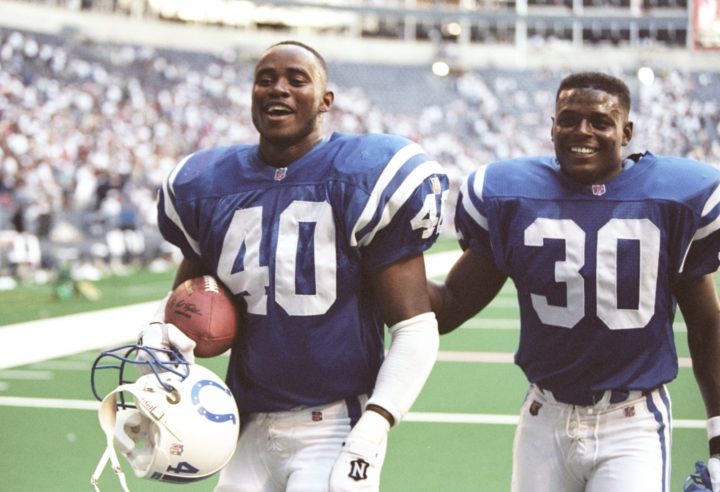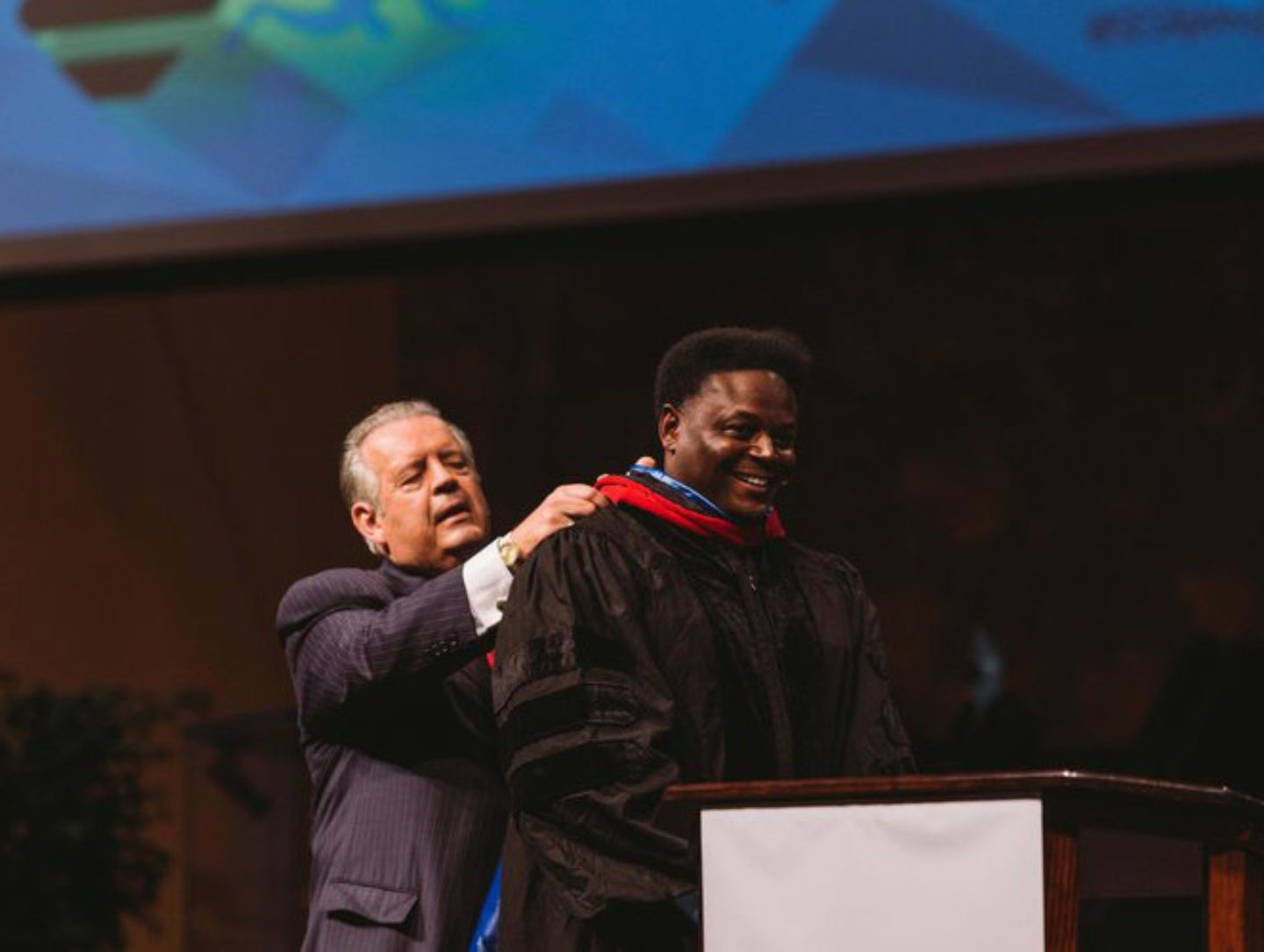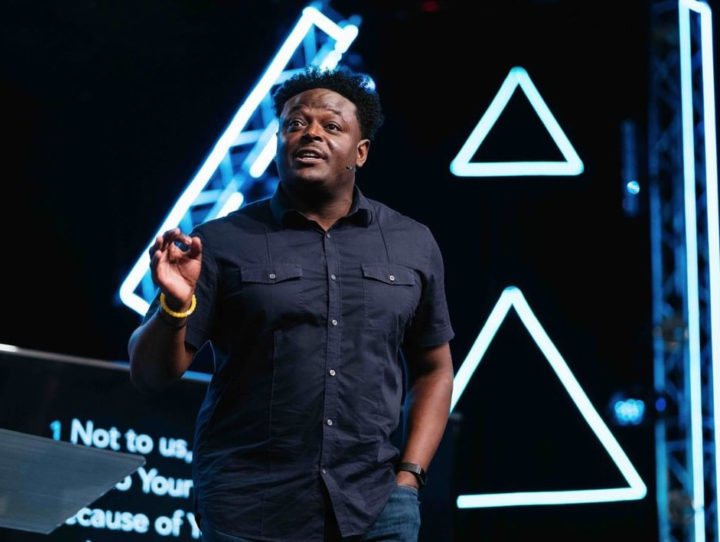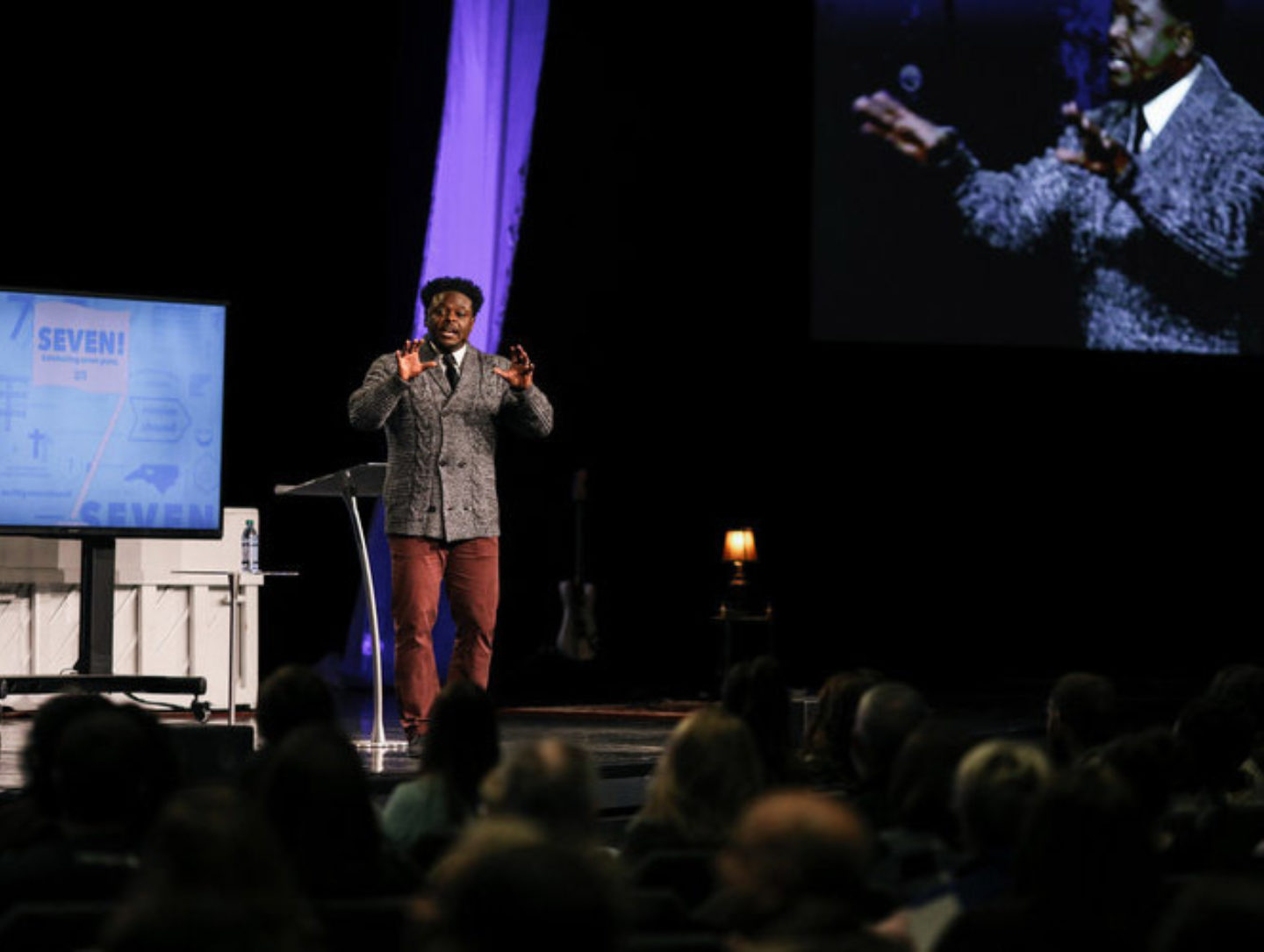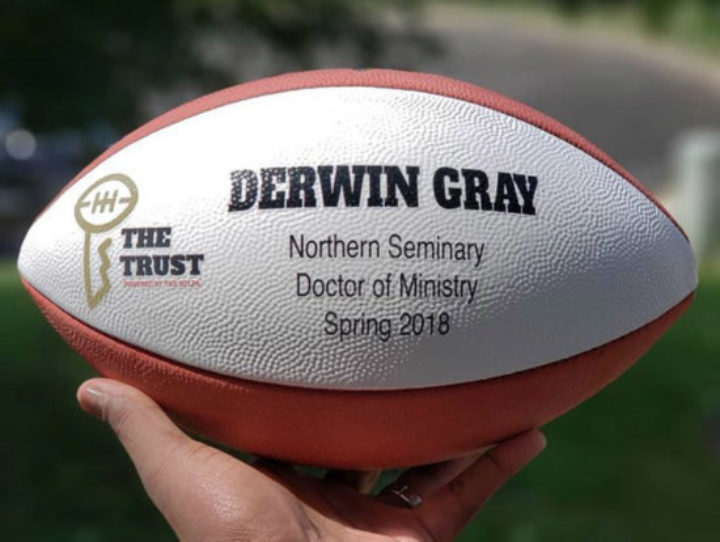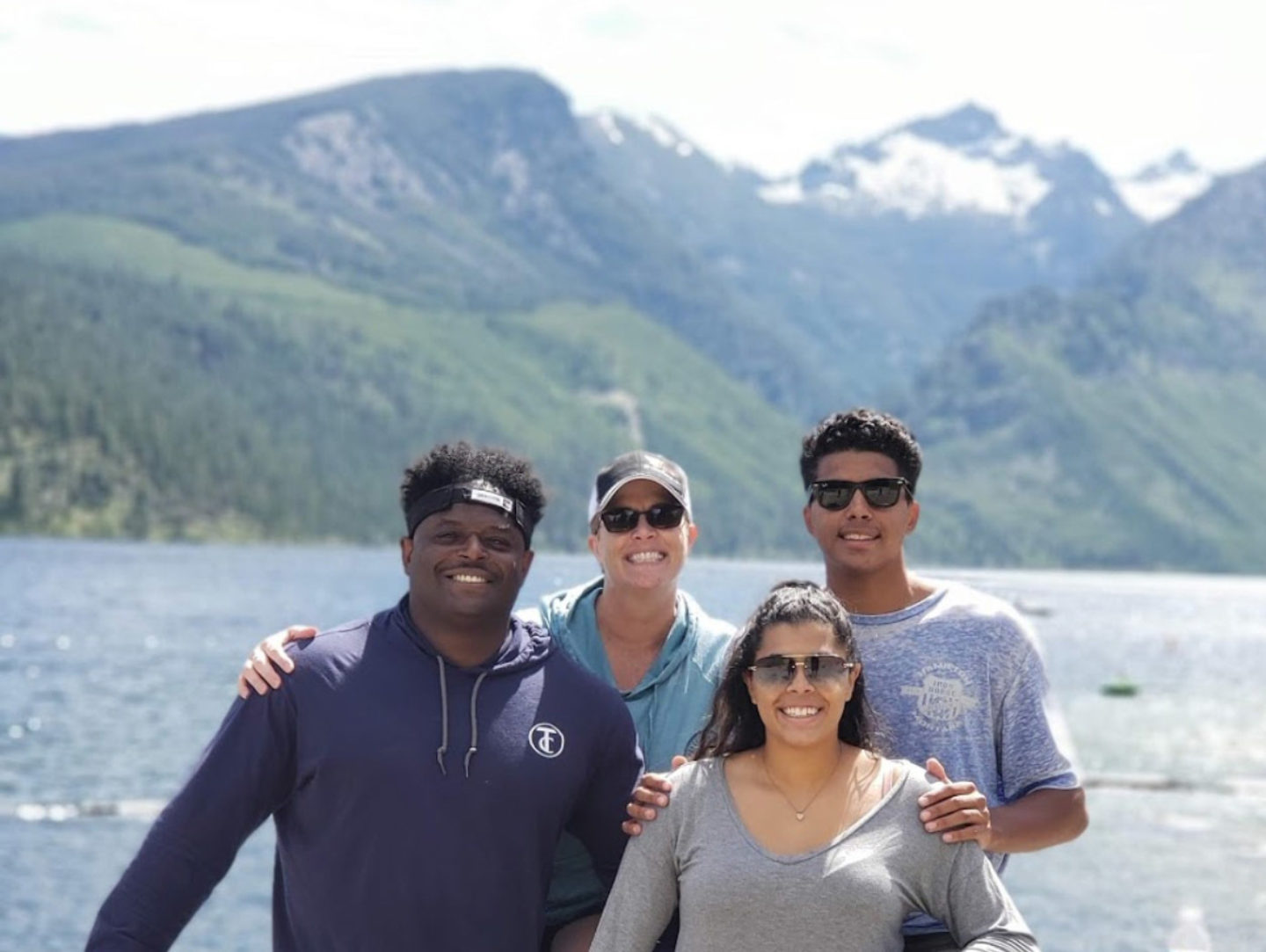My proudest football moment happened on May 23rd, 1995. It was my fifth-year wedding anniversary and my wife and I were at a restaurant in Indianapolis. When we walked in, we saw Dan Marino and Tony Siragusa were at the same restaurant. My wife asked if I was going to go say hi to them, but I said, ‘No way, Marino wouldn't know who I am.’
When we were getting ready to leave after eating, she encouraged me again to go over and say hello. I made it past the security and said, ‘Mr. Marino, my name is…’ Before I could finish, he stood up, gave me a big bear hug and said, ‘Everybody, this is Derwin Gray! I've never been hit so hard in my entire career. I had to get blood drained out of my hip, and cartilage was torn in my knee because of him. Sit down and eat with us!’ I remember watching him when I was in middle school. He was one of my favorite players, so for him to respect my game was pretty cool.
Another proudest moment was being nominated in 1995 as a team captain for the Indianapolis Colts.
